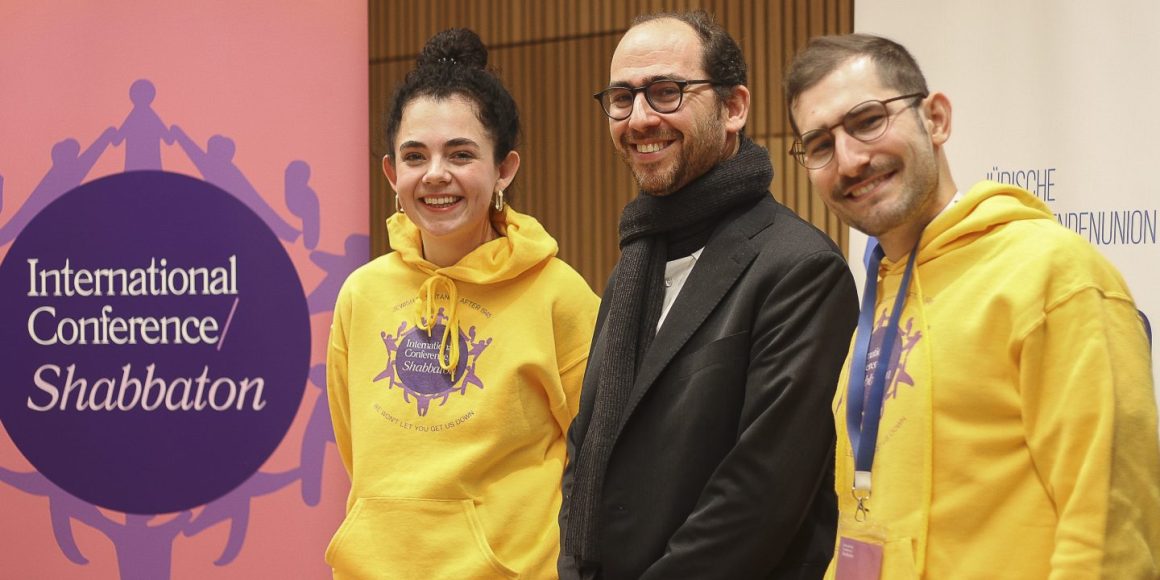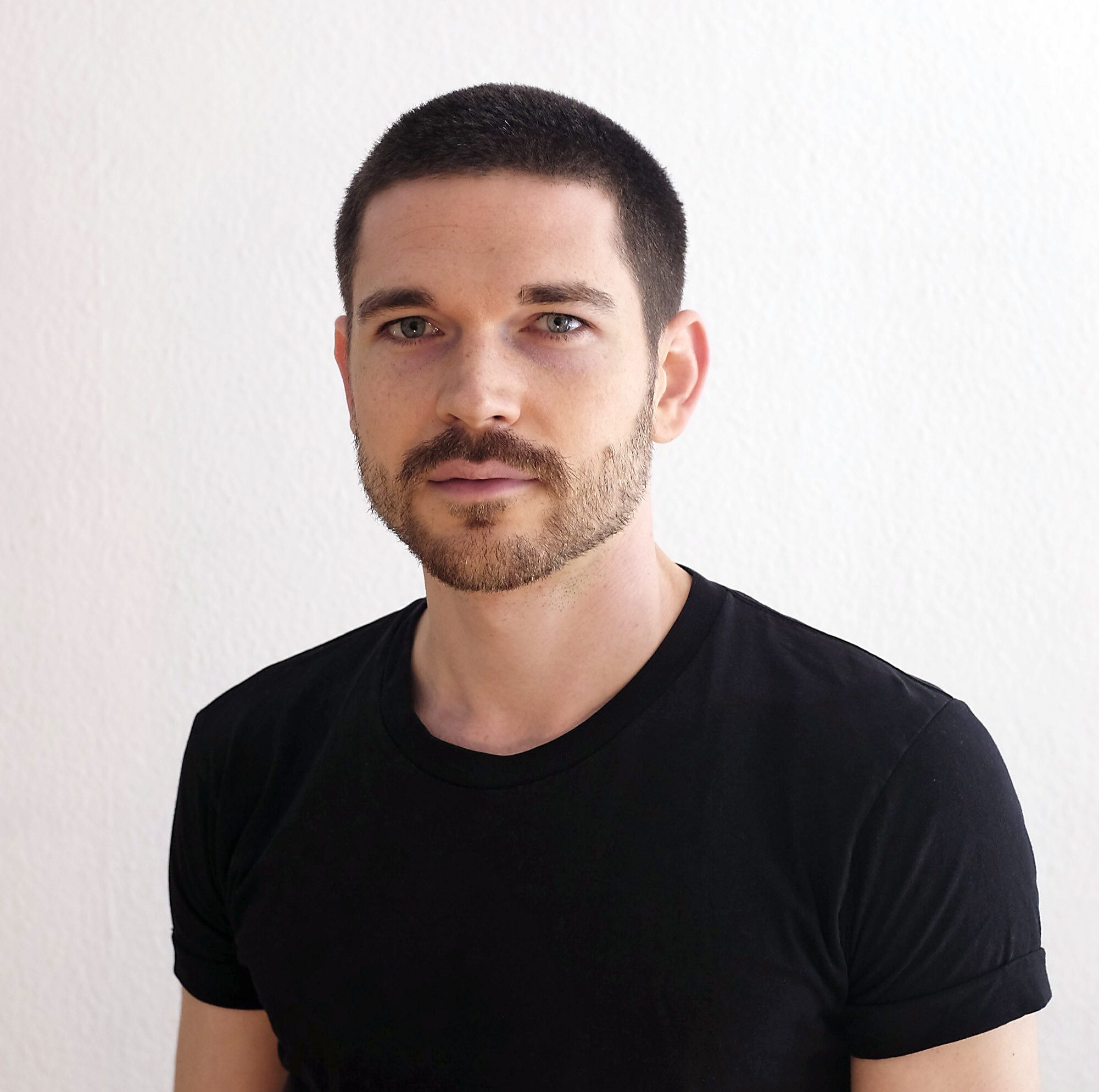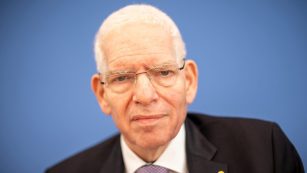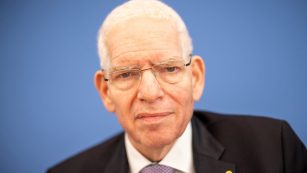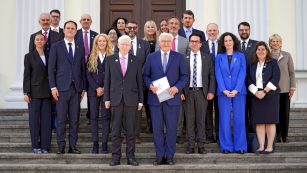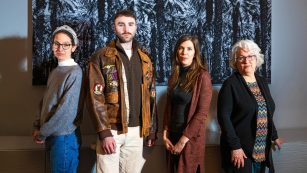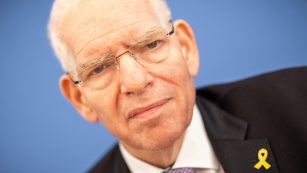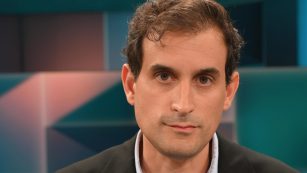The rules for this weekend don’t really fit in with the exuberant mood of the participating young people: Between the Jewish community center and their hotel, they should only use illuminated paths and never move around on their own, they are being told. Neither should they wear kippot in public nor have Stars of David on their chains. Even the jute bag that all attendees received is subject to the risk assessment.
It bears the motto of the event: »We won’t let you get us down - Jewish resistance after 1945«. The organizers recommended to keep the printed side of the bag turned away from the street. Hanna Veiler warns her guests: »I know this sucks, but these are the times we live in«, says the president of the Jewish Student Union Germany (JSUD).
At this event, Veiler speaks English because her audience is international: At the invitation of the JSUD and the Association of Jewish Students in Hesse (VJSH), more than 100 young Jews from around a dozen predominantly European countries have come to Frankfurt.
»The Times We Live In«
They are holding the »International Conference/Shabbaton« on the premises of the Jewish congregation, a combination of Shabbat celebration and educational program with workshops and discussions, in this case all about Jewish resistance. For three days, they want to exchange ideas, recharge their batteries, learn from each other, celebrate together - and forget the outside world for a while.
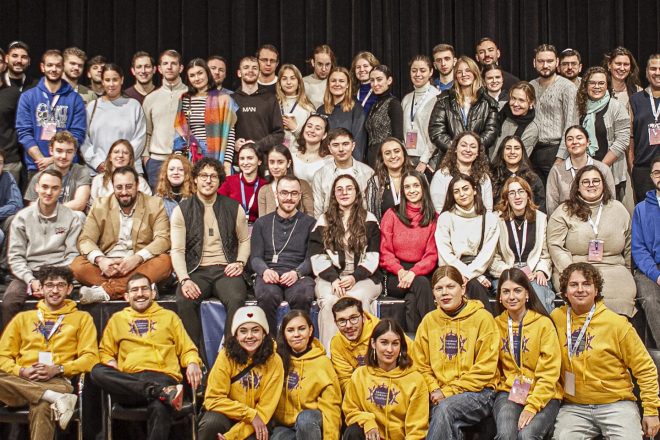
When the host speaks of the »times we live in«, all participants know exactly what she means: Even 13 months after the Hamas massacres of October 7th, 2023, and the ongoing war in Israel and Gaza since then, the Jewish community is in turmoil. In Europe, antisemitism has skyrocketed and universities have become epicenters of anti-Israel protests. »Young Jews feel like they’re being pushed into a corner where you’re just in defense mode«, says Veiler. »This situation does something to us.«
It also did something to Kevin Moshe Cohen. The young Frenchman was a member of the Socialist Party and a member the district parliament of a Paris suburb. Then came October 7th »and the left here went crazy«, says Cohen. When the Socialist mayor gave him the choice of either publicly apologizing for his pro-Israeli commitment or withdrawing from politics, Cohen went for the latter. After resigning from the party, he now also wants to leave the country and move to Israel. »As a Jew, I no longer feel safe in France.«
Even in Finland, Jews hide their identity
After October 7th, 2023, Sofia Reznik became involved with Juutalainen Opiskelijayhdistys (JOY), the Jewish student organization in Finland. Although there are fewer than 3000 Jews living in the Nordic country, »some people hide their Jewish identity here too«, says Reznik. On the other hand, she confidently wears her Star of David necklace on the streets of Helsinki. The conversations with participants from other countries showed her how relatively safe Jewish life still is in Finland. »It could be better, but it could also be worse«, she says.
Lea, who would rather not see her surname in print, wonders how long there will still be an active Jewish community in Germany. »It’s mainly the religious Jews who are moving away because of a lack of Jewish infrastructure and antisemitism«, she says. »But if no one cultivates the traditions anymore, the basis for the continued existence of the Jewish community will be missing«, believes the qualified architect, who lives in Darmstadt. She is looking for pros for staying in Germany. »But do I really want to expose my future children to the antisemitism here?«
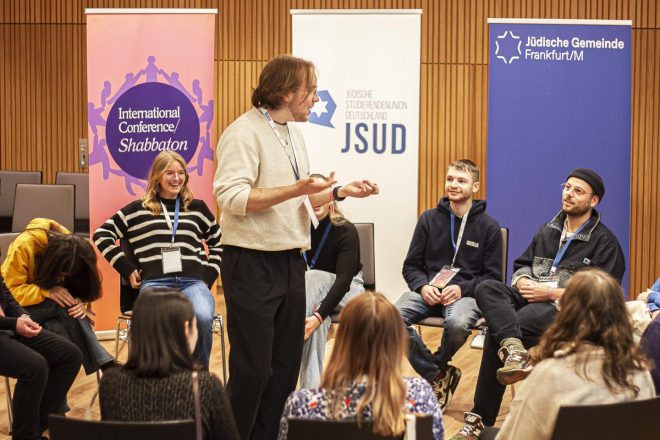
For Toby Millis, the time since October 7th, 2023, has been »a year like no other«. He studies at the University of Greenwich in London and is involved in the Union of Jewish Students, the oldest Jewish student organization in the world. There are anti-Israel protests at British universities as well, says Millis. But: »In the U.K., it’s not as bad as in the U.S..« Although he knows British Jews who are currently thinking about making Aliyah, emigrating to Israel, he himself wants to stay. »The diaspora needs us more than ever right now«, he says. But he also knows: »Israel is damn expensive.«
Exhausted and Disappointed
Radek Pintara does not want to leave either. »Jews have lived there for over 1000 years«, he says about his home country of Poland. »Imagine if that just stopped one day!« Pintara is active in the Warsaw congregation. The greatest threat to Poland’s Jewish community is ageing. In contrast, Pintara says of the rather limited anti-Israel protests in Warsaw: »We can survive them well.«
This weekend, young Jews have come together in the center of Germany who - true to the event’s motto - refuse to be defeated. They are exhausted, disappointed, many have lost friends, a few only lost their patience. But they are all resisting in their own way, against a development that is increasingly calling Jewish life in Europe into question. And where better to make this a topic than in Frankfurt?
Frankfurts self-confident Jewish congregation
The city has one of the most traditional and self-confident Jewish congregations in Germany. One of its most influential personalities after the Shoah was Arno Lustiger, a pioneer of historiography on Jewish resistance to National Socialism.
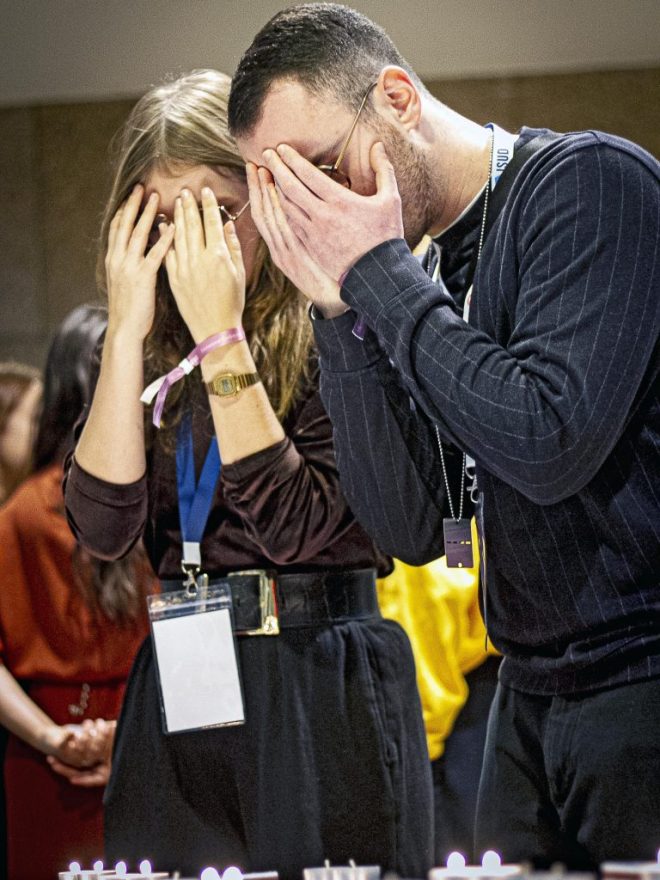
Many Frankfurt Jews were active in the 1968 movement, which also stirred up the Jewish community with its progressive ideas, and in 1984 members of the community occupied the stage of the Frankfurt Schauspielhaus theater in order to protest against Rainer Werner Fassbinder’s play »Der Müll, die Stadt und der Tod«, which they criticized as antisemitic.
This defiance is reflected in the appearance of the community center. The somewhat bulky building complex is located in the middle of the city center and towers over the surrounding houses. Surrounded by fences and heavily guarded, it has the air of a proud castle. People are safe here. They do not hide.
In this »safe space«, the Shabbaton is not just about antisemitism and October 7th. The aim is also to look inwards: What changes do young Jews want to initiate in their community?
Resistance means filling the community with life
Mike would like to see more talk about God in the community. Eva wants to have a club where Israeli music is played. Lea pleads for a wider range of Shiurim. Radek is looking for more opportunities to get to know the people in his community better. Nicole would like to talk to other Jews not only about antisemitism and politics, but also about nicer, more mundane things. Laura would like to be part of a Israeli cooking course, and Joshua dreams of a Jewish alpine club.
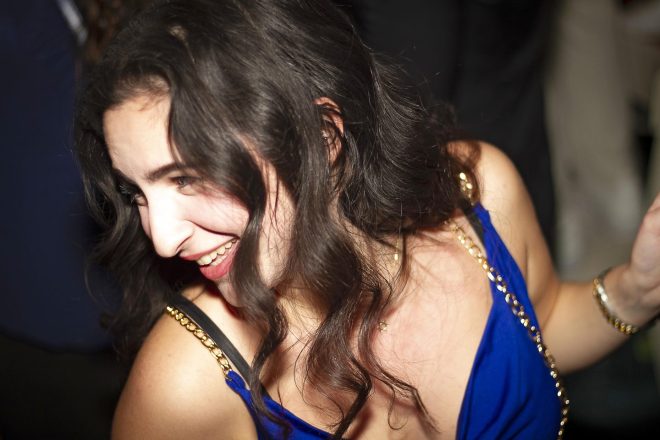
For all of them, resistance does not just mean tilting at the windmills of antisemitism. It also means filling the Jewish community with life and not losing the ability to be exuberant, even euphoric. In these times, you need to be able to switch effortlessly from a celebratory mood at one moment to deep seriousness within a few seconds.
The Shabbaton participants demonstrated what this looks like on Saturday evening. While they were still hugging each other at the Hawdala, they then remembered the hostages in the Gaza Strip. »You have to keep playing, you have to keep playing«, they sing in Hebrew, »because you can’t stop this melody«, while the names of those who have been held hostage for 13 months by Hamas are read out. The rest of the evening is spent celebrating again. It is said to have been a wild party.

